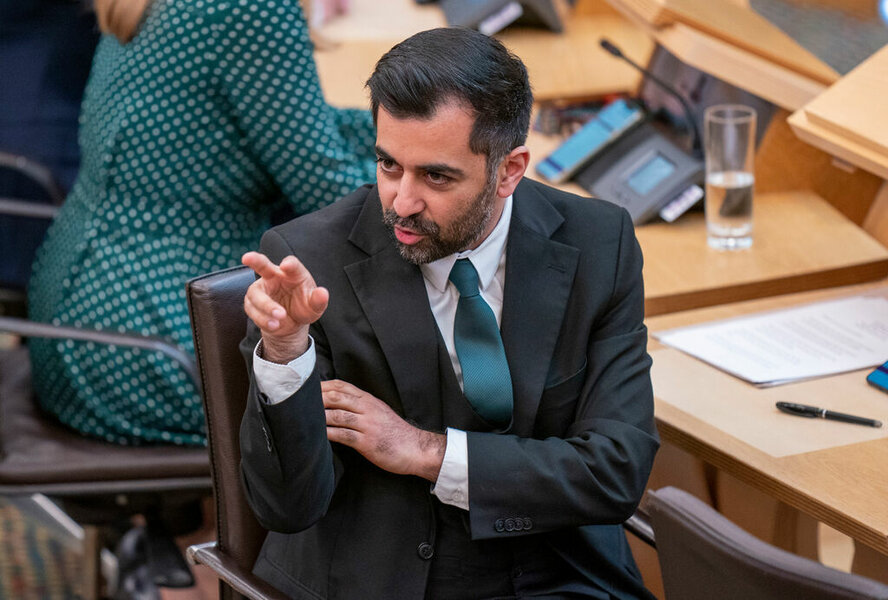Where the accent is on merit
Loading...
The selection of Humza Yousaf as leader of Scotland on Tuesday marks the first time that a Western European state will be run by a Muslim. Mr. Yousaf, a second-generation descendant of Pakistani immigrants who speaks in a brogue as thick as his beard, will be sworn in tomorrow.
The meaning of that milestone itself is difficult to parse. Mr. Yousaf’s ascent contributes to a unique historic moment. The prime ministers of Ireland and Britain, along with the mayor of London and the leader of Scotland’s main opposition party, are all of South Asian descent.
That is hugely affirming for post-colonial minority communities that have struggled against discrimination in European countries like Britain, Belgium, and France. As Mr. Yousaf argued during the campaign for his party’s leadership, “greater equality actually unlocks greater growth.”
But at a time when societies from Chile to Australia are seeking new models of social justice and constitutional reforms to protect the equal dignity of all their citizens, the more significant measure of the leadership transformations in the United Kingdom and Ireland may be in their emphasis on merit over identity.
A poll of Scottish voters taken earlier this month, for instance, found that 71% and 63% saw the economy and health care, respectively, as the most important issues. At the same time, an Ipsos poll found that 75% of Britons said the economy and inflation were their top concerns, with health care following. Nowhere mentioned was the ethnicity of political leaders, and only a minority of Scottish voters (42%) support a referendum on independence – a longstanding goal of Mr. Yousaf’s ruling Scottish National Party.
Along their individual pathways to power, Mr. Yousaf and Rishi Sunak – Britain’s first prime minister of Indian descent – have both spoken passionately about their experiences with discrimination. Neither has faced voters in a general election, yet both seem to recognize the limits of identity politics. In his first speech as party leader yesterday, Mr. Yousaf tied social justice to shared economic prosperity.
That may have been a plea for time as much as it was for unity. “A better society doesn’t happen overnight,” Mr. Sunak, whose current poll numbers are sagging amid persistent economic challenges, said in 2020. “Like all great acts of creation, it happens slowly and depends on the cooperation of each of us toward that common goal.”
In the Apostle Paul’s letter to the Galatians, the insight that “there is neither Jew nor Greek” was an acknowledgment that the values of just societies are of greater importance than the material identity of those defending them – such as a Hindu-practicing Briton or a Muslim with a Scottish brogue.







